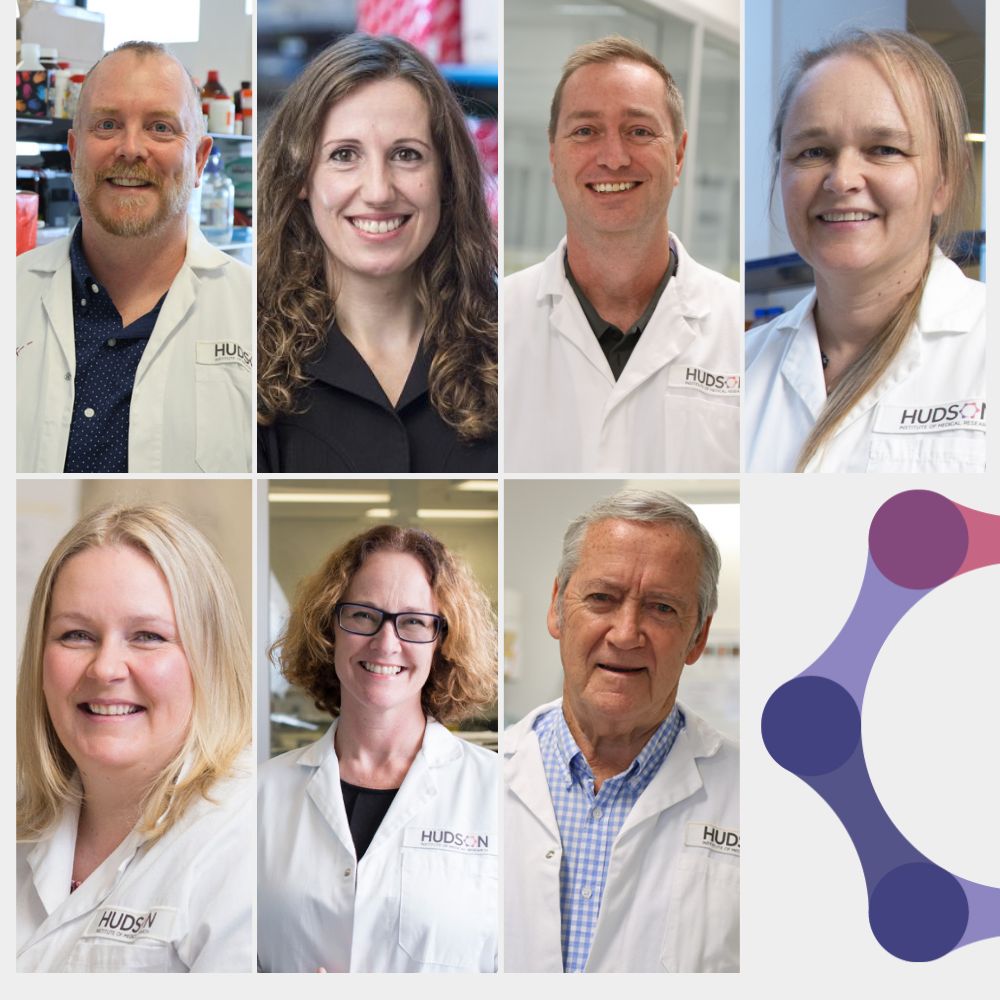Prestigious grant fosters international interdisciplinary RNA research
By Rob Clancy, staff writer
A biomedical team based at Hudson Institute has received sought-after funding to pursue new international interdisciplinary RNA research cooperation.

The Human Frontier Science Program has awarded one of only 25 Program Research Grants worldwide to a team led by Professor Elizabeth Hartland, and involving Hudson Institute post-doctoral researcher, Dr Kitty McCaffrey.
The project titled Bacterial targeting of the host epitranscriptome, also involves Frédéric Allain from the Swiss Federal Institute of Technology in Zurich and Mark Helm from Johannes Gutenberg University of Mainz Germany.
Gene regulation
Prof Hartland explains that the post-transcriptional processing and modification of cellular RNA provides an additional level of gene regulation that is known as the epitranscriptome.
“However, despite current knowledge of RNA modifications, the functional significance of many epitranscriptomic changes within the cell is unknown,” she says.
“Here we will explore the impact of bacterial infection on the host epitranscriptome using methods to identify the direct and specific modification of host RNA by bacterial pathogens.”
“Despite current knowledge of RNA modifications, the functional significance of many epitranscriptomic changes within the cell is unknown. Our project will help understanding of how RNA modifications regulate cellular functions and provide new insight into how pathogens replicate in human cells.” – Professor Elizabeth Hartland
Ambitious international RNA research cooperation
The International Human Frontier Science Program Organization, founded in 1989, develops and implements the Human Frontier Science Program, with the aim of encouraging ambitious interdisciplinary basic research.
Program Research Grants provide three years of support for international teams involving at least two countries, with preference given to intercontinental collaborations.
All team members are expected to broaden the character of their research compared to their ongoing research programs and interact with teams bringing expertise that is very different from their own so as to create novel approaches to problems in fundamental biology.
Contact us
Hudson Institute communications
t: + 61 3 8572 2761
e: communications@hudson.org.au
In this article
About Hudson Institute
Hudson Institute’ s research programs deliver in three areas of medical need – inflammation, cancer, women’s and newborn health. More
Hudson News
Get the inside view on discoveries and patient stories
“Thank you Hudson Institute researchers. Your work brings such hope to all women with ovarian cancer knowing that potentially women in the future won't have to go through what we have!”






